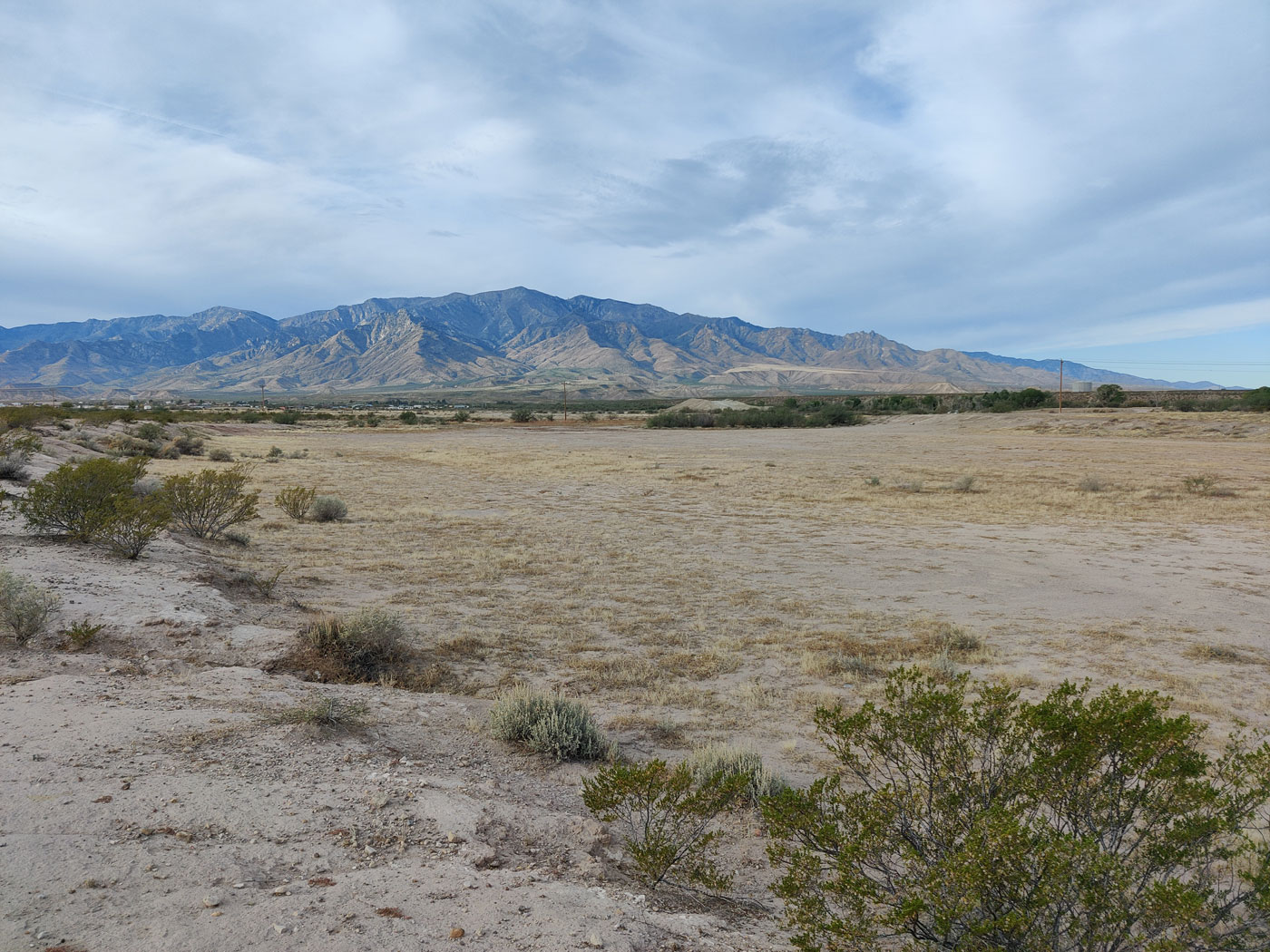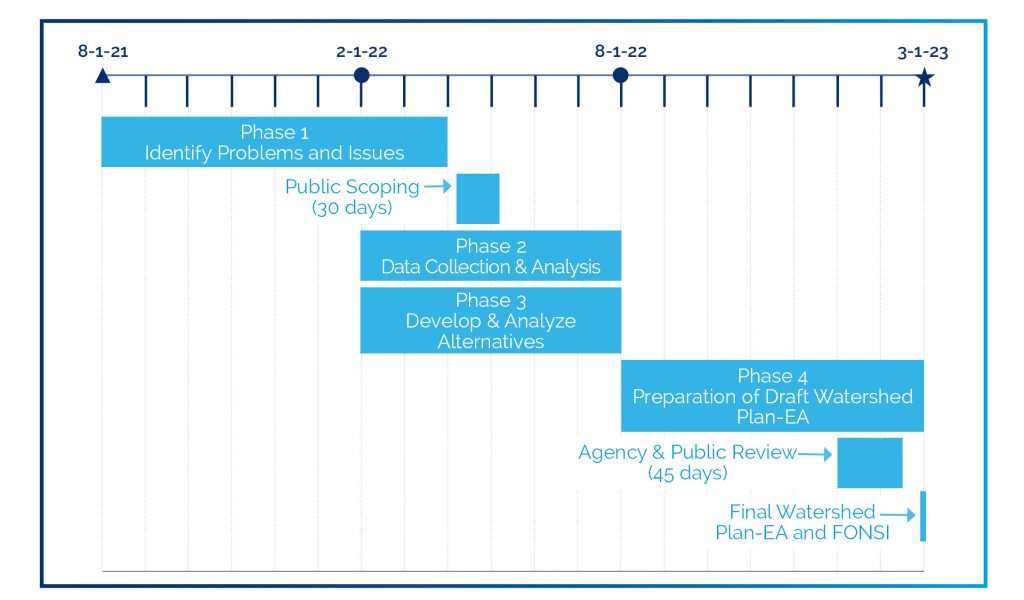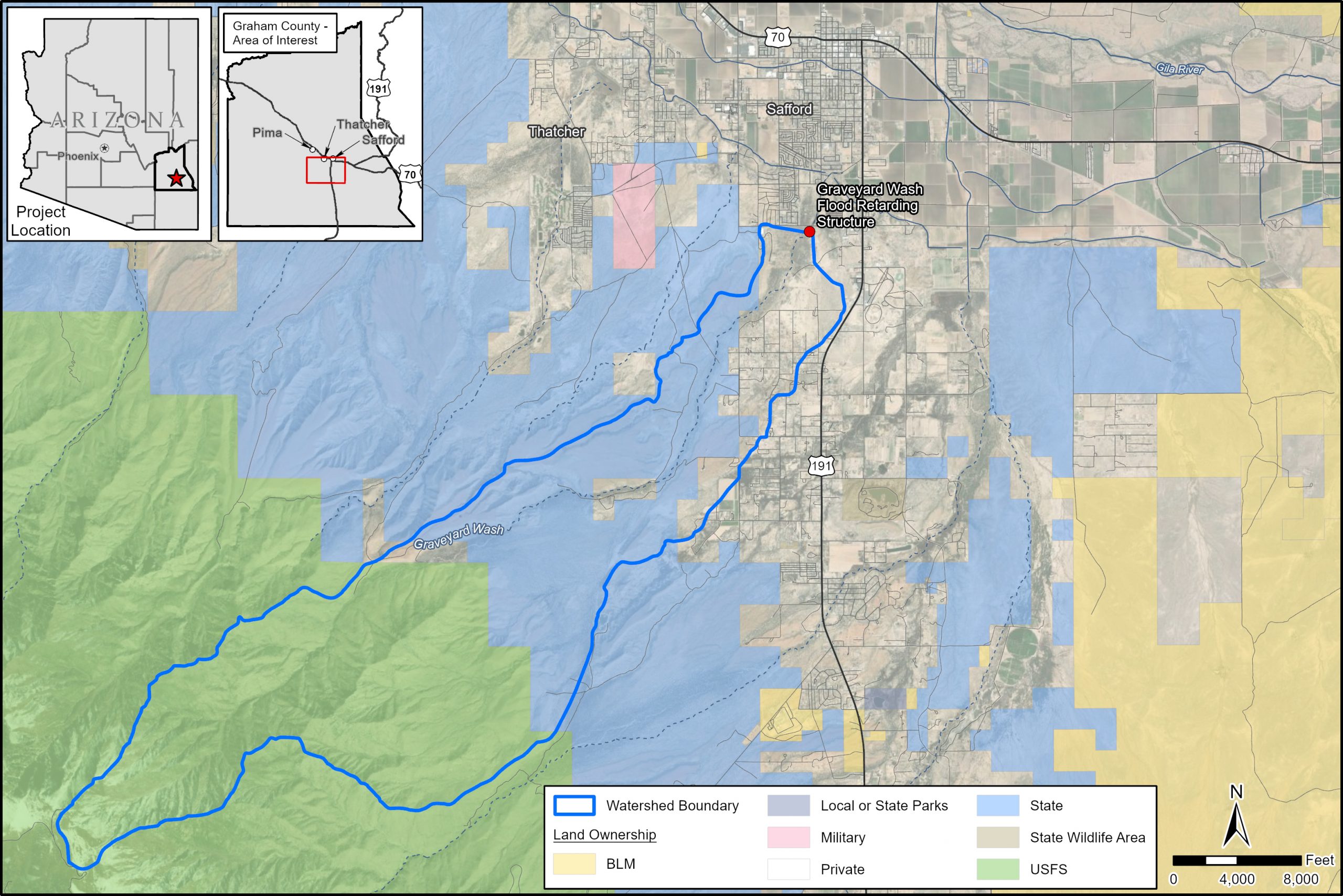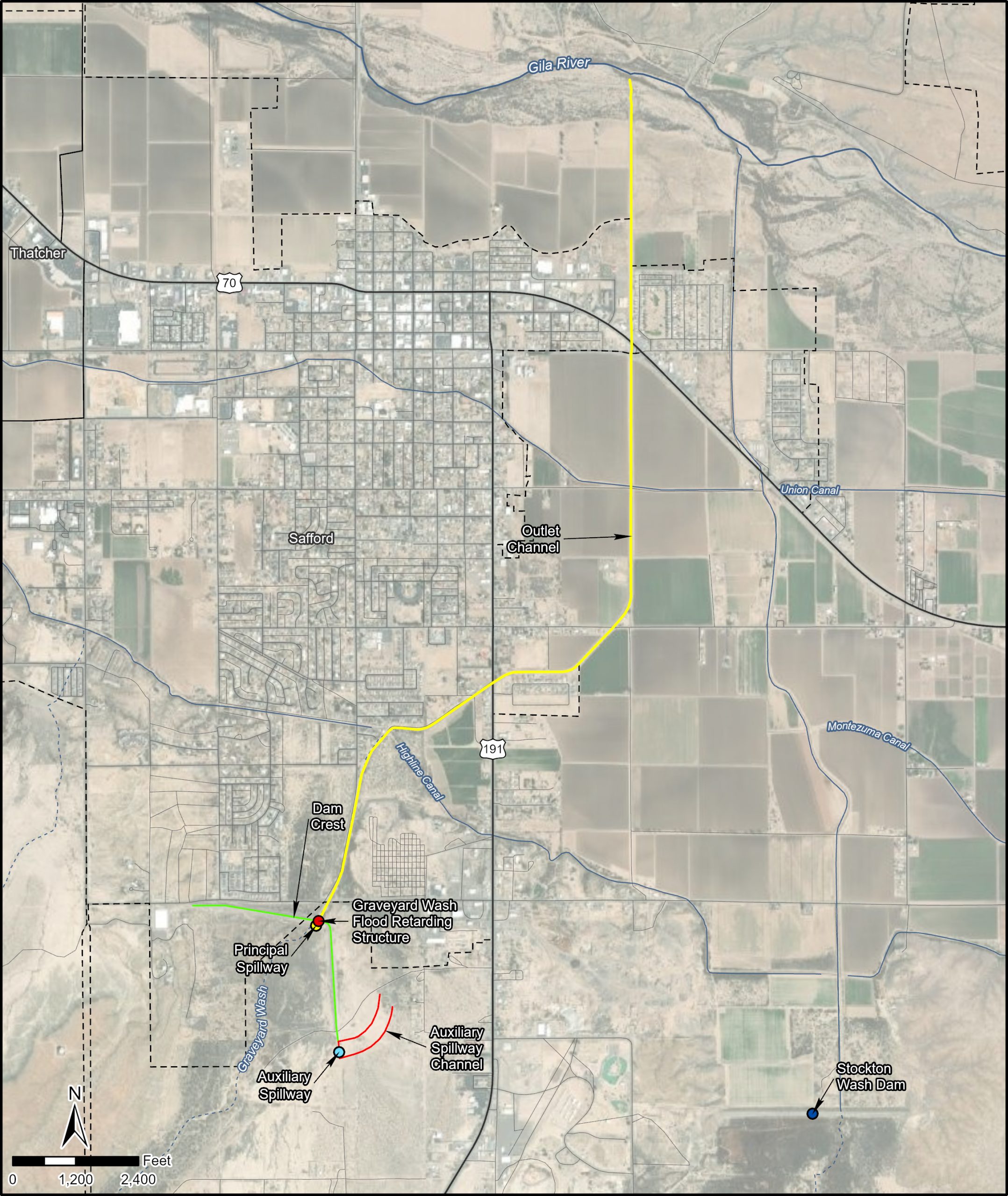
Graveyard Wash Flood Retarding Structure Rehabilitation Project
Supplemental Watershed Plan No. 2
Overview
The United States Department of Agriculture (USDA) Natural Resources Conservation Service (NRCS) proposes to supplement the Frye Creek – Stockton Wash Watershed Work Plan under Public Law 83-566 (PL-566) authority (Watershed Protection and Flood Prevention Act of 1954, as amended). The original Plan was prepared in 1958, and was first supplemented in 1961; this project is the second supplement to the Plan. The NRCS National Watershed Program Manual (NWPM) sets forth the policy for all watershed plans developed under the PL-566 Program. No project will be funded unless it meets the requirements set forth in the manual. PL-566 authorizes the NRCS to provide technical and financial assistance to sponsoring local organizations (Sponsors) to prepare and implement watershed plans. The Sponsor for this effort is the City of Safford.
The Graveyard Wash Flood Retarding Structure (FRS) was designed and constructed by the Soil Conservation Service (now NRCS) under the Frye Creek – Stockton Wash Watershed Work Plan that was prepared in 1958. The dam structure and appurtenances were constructed in 1962 with a design service life of 50 years. Recent assessments indicate that the dam and appurtenances do not meet current NRCS and Arizona Dam Safety criteria and performance standards for numerous criteria. Alterations to bring the dam into compliance with current criteria will require another supplement to the 1958 Plan. The NRCS will assist the City of Safford in preparing a supplemental watershed project plan and environmental assessment, which will be combined into a single document, called the Supplemental Plan-EA. The Supplemental Plan-EA will be prepared to comply with the National Environmental Policy Act (NEPA). The purpose of the Supplemental Plan-EA is to develop a watershed project plan so that NRCS can decide whether to provide technical and financial assistance for implementation of the alternative selected by the City of Safford.
Technical studies are currently being conducted, with a Draft Plan-EA anticipated in early 2023.
Schedule
This planning effort will be completed in four phases.
We are currently in Phase 1 – Identify Problems and Determine Objectives. As part of this phase, we are soliciting public feedback to identify possible concerns with rehabilitation activities in the vicinity of the Graveyard Wash Flood Retarding Structure.

Public Scoping Meeting
- Date: Wednesday, April 20, 2022
- Time: 6:30 to 7:30 pm MST
- Place:
- Online at Zoom.us
- Meeting ID: 857 0079 6656
How To Comment
- Submit comments on the map below:
- Send an email to:
- Mail comments to the following address:
- Jones & DeMille Engineering
- Attn: Jenna Jorgensen
- 1535 S. 100 W., Richfield, UT 84701
Comments will be accepted through the project website, email, and mail between April 5, 2022, and May 5, 2022, 11:59 PM (MST). Mailed comments will be accepted if postmarked by May 5, 2022.
Public Comment + Map
Scoping
The NEPA process includes an early and open process to determine the scope of issues for analysis; this process is termed scoping. The scoping process for this Watershed Plan-EA will include public meetings and a comment period when the public can submit information, comments, and concerns to consider during development of the project. During this period, the public may provide comments via this website, email, or mail (see How to Comment section below). In addition to comments and input provided by the public, per Title 390 – National Watershed Program Manual Part 501.24, scoping must consider, but is not limited to, the following:
- National Economic Development (NED) Principles and Guidelines
- Air quality
- Coral reefs
- Cultural resources
- Ecologically critical areas
- Endangered and threatened species
- Environmental justice and civil rights
- Essential fish habitat
- Fish and wildlife (including coordination requirements)
- Floodplain management
- Forest resources
- Invasive species
- Land use
- Migratory birds
- Natural areas
- Parklands
- Prime and unique farmland, and farmland of statewide significance
- Public health and safety
- Regional water resource plans (including coastal zone plans)
- Riparian areas
- Scenic beauty
- Scientific resources
- Sole source aquifers
- Social issues
- Soil resources
- Water quality
- Water resources
- Waters of the United States, including special aquatic sites
- Wetlands
- Wild and scenic rivers
- Other concerns identified by Sponsoring Local Organization, agencies, and the public
In accordance with Federal civil rights law and U.S. Department of Agriculture (USDA) civil rights regulations and policies, the USDA, its Agencies, offices, and employees, and institutions participating in or administering USDA programs are prohibited from discriminating based on race, color, national origin, religion, sex, gender identity (including gender expression), sexual orientation, disability, age, marital status, family/parental status, income derived from a public assistance program, political beliefs, or reprisal or retaliation for prior civil rights activity, in any program or activity conducted or funded by USDA (not all bases apply to all programs). Remedies and complaint filing deadlines vary by program or incident.
Persons with disabilities who require alternative means of communication for program information (e.g., Braille, large print, audiotape, American Sign Language, etc.) should contact the responsible Agency or USDA’s TARGET Center at (202) 720-2600 (voice and TTY) or contact USDA through the Federal Relay Service at (800) 877-8339. Additionally, program information may be made available in languages other than English.
To file a program discrimination complaint, complete the USDA Program Discrimination Complaint Form, AD-3027, found online at How to File a Program Discrimination Complaint and at any USDA office or write a letter addressed to USDA and provide in the letter all of the information requested in the form. To request a copy of the complaint form, call (866) 632-9992. Submit your completed form or letter to USDA by: (1) mail: U.S. Department of Agriculture, Office of the Assistant Secretary for Civil Rights, 1400 Independence Avenue, SW, Washington, D.C. 20250-9410; (2) fax: (202) 690-7442; or (3) email: program.intake@usda.gov.
USDA is an equal opportunity provider, employer, and lender.

